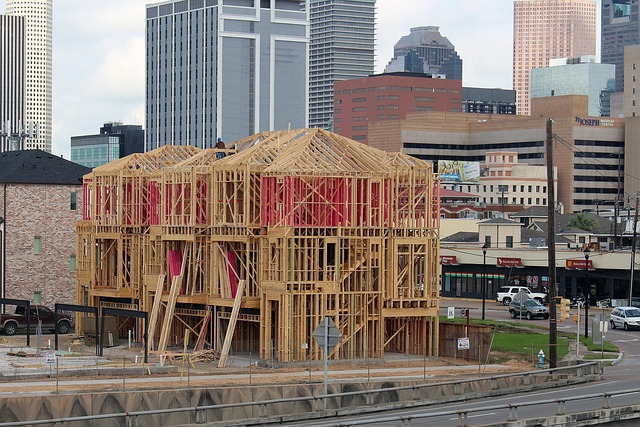Selling a fire-damaged house in Houston requires strict adherence to local property disclosure laws, ensuring transparency and protecting buyers and sellers. Sellers must disclose all material defects, including details about the fire, its cause, and repairs made, signing a Property Disclosure Statement. Legal implications vary, excluding latent defects but mandating disclosures for known environmental hazards or building code violations. Navigating these complexities with legal guidance facilitates a smooth sale while complying with "sell fire-damaged house Houston" regulations.
“Navigating Texas property disclosure laws is essential when considering to sell a fire-damaged house in Houston. This comprehensive guide delves into the intricate details of these laws, focusing on the specific requirements for disclosing fire damage. Understanding these regulations is crucial for both sellers and buyers in the Houston real estate market. From legal implications and exclusions to a step-by-step process, this article ensures you’re informed every step of the way when selling a fire-damaged property in Texas.”
- Understanding Texas Property Disclosure Laws
- Disclosing Fire Damage: What Sellers Must Know
- Legal Implications and Exclusions in Houston
- Selling a Fire-Damaged House: A Step-by-Step Guide
Understanding Texas Property Disclosure Laws

In the state of Texas, property disclosure laws play a crucial role in ensuring transparency during real estate transactions, especially when selling a fire-damaged house in Houston. These laws require sellers to disclose any known material defects or damage that could impact a buyer’s decision. When it comes to a fire-damaged property, sellers must provide detailed information about the extent of the damage, the cause, and any repairs undertaken.
Understanding these disclosure requirements is essential for both buyers and sellers. For those looking to sell their fire-damaged Houston homes, it means gathering relevant documents and assessments to prove that necessary repairs have been made. Buyers, on the other hand, should thoroughly review these disclosures to make informed decisions. By adhering to these laws, Texas facilitates a more honest and transparent real estate market, protecting the interests of all parties involved in the sale of fire-damaged properties.
Disclosing Fire Damage: What Sellers Must Know

When selling a fire-damaged house in Houston, Texas, sellers have specific disclosure obligations under state law. It’s crucial to remember that buyers are entitled to know the extent and nature of any damage, including fires, as it can impact their decision to purchase. In Texas, sellers must disclose any known information regarding significant fire damage, even if repairs have been made. This includes providing details about when the fire occurred, the cause (if known), and the scope of the damage sustained.
The law requires that sellers sign a Property Disclosure Statement, acknowledging their responsibility to disclose any material defects or known issues, including fire damage. While this doesn’t necessitate disclosing every minute detail, it’s important to be transparent about the extent of repairs undertaken and any lingering effects of the fire. Omission or misrepresentation of such information can lead to legal consequences for the seller and may even affect the buyer’s right to seek compensation if undisclosed issues are discovered after the sale.
Legal Implications and Exclusions in Houston

When considering a sale, especially a sell fire-damaged house Houston scenario, understanding legal implications and exclusions is paramount. In Houston, property disclosure laws aim to protect buyers and sellers by establishing clear expectations regarding the condition of the property. However, these laws do not require disclosure of latent defects that are not reasonably discoverable during a typical inspection. This includes issues like hidden structural damage or extensive fire damage that occurred prior to the current owner taking possession.
There are notable exceptions, such as known environmental hazards or violations related to building codes and safety regulations, which must be disclosed. Failure to disclose these matters could lead to legal repercussions for the seller, including potential suits for fraud if buyers suffer financial loss due to undisclosed issues. Thus, both parties should consult with legal professionals to navigate these complexities, especially in cases of fire damage, ensuring a smooth and legally sound transaction when selling a fire-damaged house Houston.
Selling a Fire-Damaged House: A Step-by-Step Guide

Selling a fire-damaged house in Houston involves a specific set of steps to ensure compliance with local property disclosure laws. First, conduct a thorough inspection to assess the extent of damage and create a detailed list of repairs needed. This step is crucial as it determines the house’s current value and potential selling price. Remember, transparency is key; you must disclose all known issues to potential buyers, including any structural damages or necessary renovations.
Next, consult with a real estate professional experienced in handling fire-damaged properties. They can guide you through the legal requirements for disclosure in Texas and help set an accurate asking price. During the listing process, be prepared to provide comprehensive documentation regarding the fire damage history and any repairs undertaken. This may include insurance reports, repair estimates, and photos documenting both the damage and remediation efforts. By following these steps, you can navigate the selling process efficiently while adhering to Houston’s property disclosure laws.
When selling a fire-damaged house in Houston, understanding Texas property disclosure laws is crucial. This comprehensive guide has walked you through the process, from disclosing fire damage to navigating legal implications and exclusions. By following the step-by-step guide provided, you can ensure transparency and mitigate potential issues when selling a fire-damaged property in this region. Remember that informed sellers are better equipped to make sound decisions and successfully navigate the real estate market.






